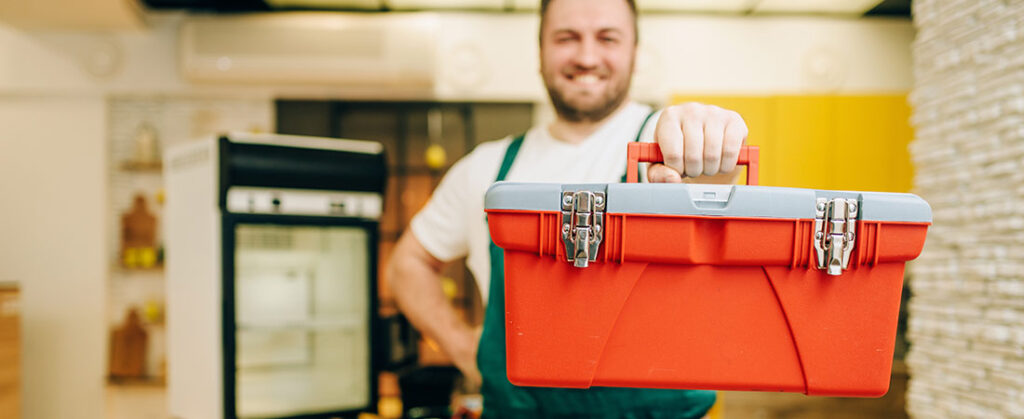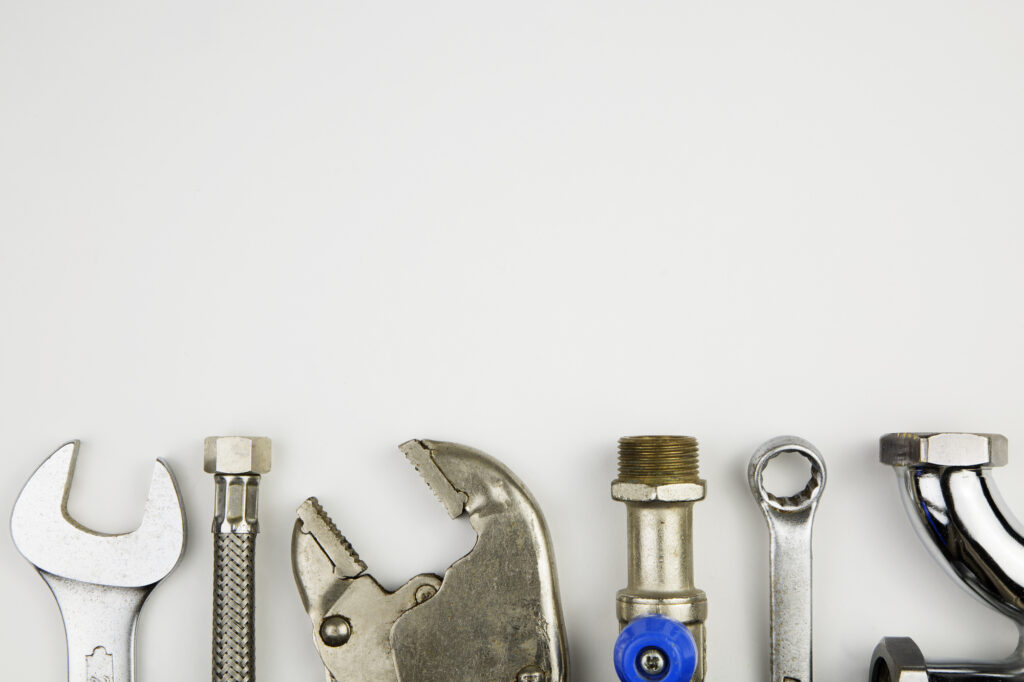When it comes to plumbing, having the right tools can make a significant difference between a quick fix and a long, drawn-out project. Plumbing tasks, whether simple repairs or full installations, require specialized tools to ensure everything is done correctly and efficiently. Identifying the right tools for the job can be a daunting task, especially for beginners. In this guide, we’ll explore how to determine which plumbing tools are essential for different plumbing jobs and how to ensure you’re investing in the right equipment.
Understanding the Types of Plumbing Jobs

Before you start selecting plumbing tools, it’s essential to understand the types of plumbing jobs you may encounter. Plumbing tasks can range from basic repairs, such as fixing a leaky faucet, to more complex work like replacing pipes or installing water heaters. Some jobs may require only basic tools, while others will demand a more extensive collection of specialized equipment. By assessing the type of work you plan to undertake, you can better identify the tools that are necessary for your needs.
For instance, smaller tasks, such as tightening a faucet or replacing a washer, often require only a few basic tools like a wrench, pliers, and screwdrivers. On the other hand, more advanced jobs like pipe installation, trenching, or sewer line cleaning will require a wider array of tools like pipe cutters, drills, and even more advanced machinery.
Essential Plumbing Tools Every Homeowner Should Have
Regardless of the type of plumbing work you plan to do, there are several essential tools that every homeowner should own. These basic tools will allow you to perform minor plumbing repairs and maintenance, helping you avoid unnecessary plumbing service calls.
Pipe Wrench: A pipe wrench is one of the most fundamental tools in any plumber’s toolkit. It’s used for gripping and turning pipes, especially in tight spaces. The adjustable jaws of the pipe wrench provide a strong grip, which is crucial when loosening or tightening pipe fittings.
Adjustable Wrench: An adjustable wrench is versatile and can be used on various plumbing fixtures. It’s perfect for tightening or loosening nuts and bolts without needing multiple wrenches for different sizes. The adjustable jaw allows it to fit a variety of fasteners, making it a must-have for any plumbing task.
Pliers: Pliers are essential for holding or bending wires and small plumbing parts. They’re used for a wide range of plumbing applications, including removing faucets or gripping small components that may be hard to handle with other tools.
Plunger: A plunger is one of the simplest yet most effective tools for clearing blockages in toilets and drains. It’s especially useful for minor clogs, allowing you to fix the problem without calling in a professional.
Pipe Cutters: If you’re dealing with pipe installation or repairs, a pipe cutter is a must. This tool is specifically designed to make clean, precise cuts through copper, PVC, and other types of piping, reducing the risk of damaging your pipes during installation.
These basic tools should be in your plumbing toolkit to ensure you’re prepared for a range of common plumbing issues. However, for more advanced or specific plumbing needs, additional tools may be necessary.
Specialized Plumbing Tools for Advanced Projects
For more complicated plumbing jobs, specialized tools are often required to ensure precision and effectiveness. These tools can be more expensive, but they’re essential for tackling complex plumbing problems.
Sewer Snake or Drain Auger: When a simple plunger doesn’t work, a sewer snake or drain auger can help clear more stubborn blockages deep within your pipes. This tool is particularly useful for removing grease, tree roots, or other debris that can obstruct your plumbing.
Flaring Tool: When working with copper piping, a flaring tool is needed to create a flare at the end of the pipe, allowing it to be connected securely to fittings. This tool is commonly used in tasks like installing gas lines or water supply systems.
Tubing Bender: A tubing bender is used to shape metal pipes into the correct angle without kinking them. If you’re working with gas, water, or refrigeration lines, this tool is indispensable for achieving precise bends.
 Pipe Threader: For tasks involving threaded pipes, a pipe threader is a must-have tool. It allows you to cut threads onto the ends of pipes, which are required for connecting fittings. This tool is especially useful when working with steel or iron pipes.
Pipe Threader: For tasks involving threaded pipes, a pipe threader is a must-have tool. It allows you to cut threads onto the ends of pipes, which are required for connecting fittings. This tool is especially useful when working with steel or iron pipes.
Plumbing Camera: For a professional approach to identifying blockages and assessing pipe conditions, a plumbing camera is an essential tool. This tool is equipped with a small camera that can be inserted into pipes, providing a live feed of the pipe’s interior. It’s particularly helpful for diagnosing hidden problems like pipe corrosion or leaks.
Hot Water Recirculating System Tools: If you’re installing or repairing a hot water recirculating system, special tools are required to ensure proper setup. These systems require precise installation, and tools like pump removal tools, valves, and fittings are needed for effective repairs or replacements.
How to Choose Quality Plumbing Tools
Investing in the right tools means you must also ensure they’re of high quality. Low-quality tools can break easily, leading to costly repairs and replacement. When selecting plumbing tools, here are some key factors to consider:
Material Durability: Plumbing tools must be durable to withstand heavy use. Stainless steel and high-carbon steel are often used in quality tools because they are rust-resistant and can handle the pressure of plumbing work.
Comfort and Ergonomics: Plumbing tasks can require long hours of work, so it’s essential to choose tools with ergonomic handles that reduce strain on your hands and wrists. Comfortable handles and grips make it easier to work for extended periods, especially when dealing with tough projects.
Brand Reputation: Choose tools from reputable brands known for producing high-quality plumbing equipment. Well-established brands usually offer warranties on their products, ensuring that if your tool breaks prematurely, you can get a replacement.
Tool Versatility: When possible, select tools that can serve multiple purposes. Adjustable wrenches and pliers, for example, can handle a variety of tasks, reducing the need for multiple specialized tools.